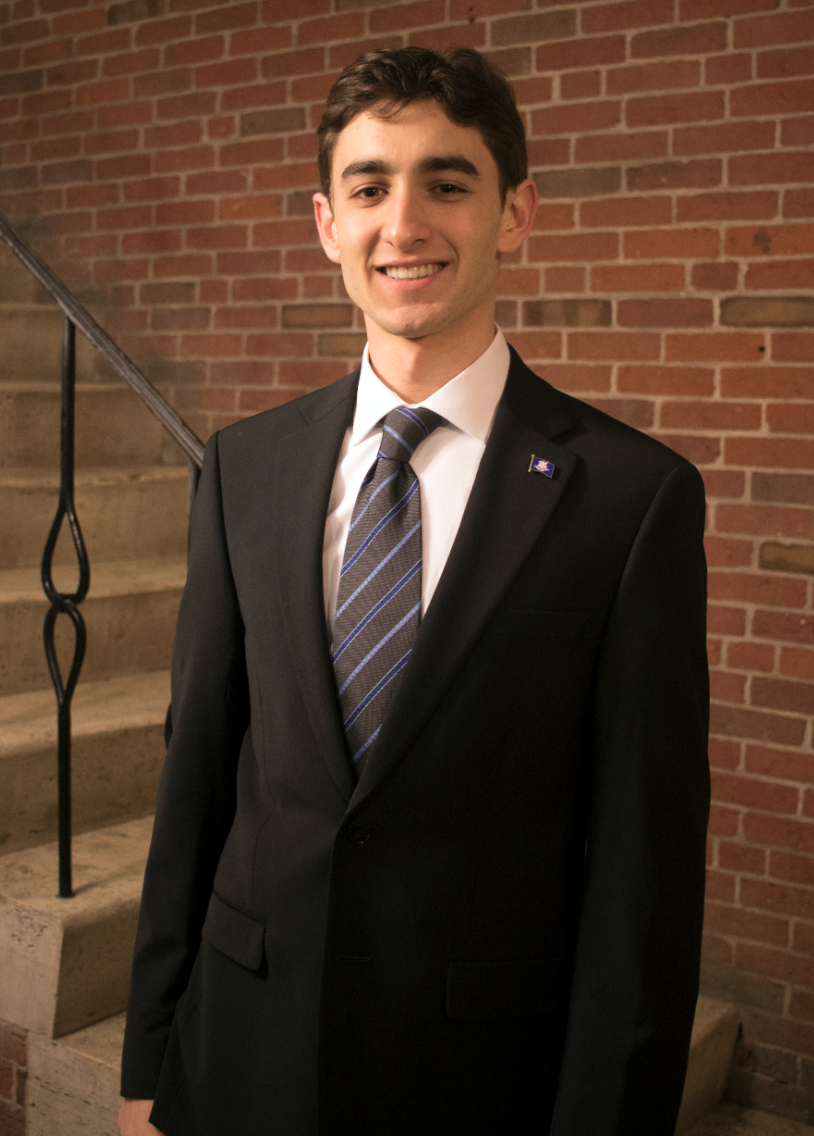
Yale students are famous for their political engagement — working on elections, debating policy issues and persuading their classmates to vote. After graduation, many alumni choose to run for office themselves. But this year, both Grant Richardson ’19 and Jordan Grode ’21 are fielding their own campaigns for the Connecticut House of Representatives as full-time students.
Grode and Richardson, both Republicans, may not boast the same political resume as their opponents, who are incumbents. Yet that has not dampened their enthusiasm. Grode is particularly excited to work on the state budget and its tax system, citing legislative failures over the past couple of decades as motivation to enter the race.
“I think that we need legislators who will do away with the regime of short-term deals for political gain that have long-term consequences. We need someone with the political courage to shift to zero-based budgeting and to reform the employee retirement system.” said Grode. “Only with these and other reforms can Connecticut lower taxes and restart the economy.”
Excited as they might be, both face tough uphill battles running as Republicans against Democrat incumbents in historically safely liberal districts in the city of New Haven, which has approximately 19 times as many registered Democrats as Republicans. Richardson, who is from Maryland, is running in a district that encompasses part of Yale College — including Morse, Ezra Stiles, Pierson and Davenport Colleges. His opponent, Toni Walker, is a 17-year incumbent in the House. While Walker has often run uncontested — including in 2008, 2010, 2012 and 2014 — in 2016, she won against a Republican opponent with over 94 percent of the vote.
Though Richardson’s district includes part of the University, he seeks to represent areas of New Haven off campus as well. In an interview with the News, he said he has not faced any difficulties connecting with voters two or three times his age.
“Older residents are generally understanding of my candidacy.” Richardson said. “They like to see younger people engaging with politics, and New Haven residents laud increased engagement from Yale students.”
Grode is running in a neighboring district, which includes Silliman, Timothy Dwight, Pauli Murray, Benjamin Franklin, Grace Hopper, Berkeley and Trumbull Colleges, a larger portion of New Haven and a small section of Hamden. His opponent, Democrat Robyn Porter, first entered the seat through a special election in April 2014. That same November, Porter won over 90 percent of the vote against a Green party candidate and then ran unopposed in 2016. The last Republican to run in the district received less than 5 percent of the vote during the special election in 2014.
Still, Grode reiterated his excitement not only about running the campaign but also about undertaking policy work if he is elected. Concerned about rising debt levels and high tax burdens on the citizens of Connecticut, he hopes to reduce taxes and to allow Connecticut to afford important services without going bankrupt.
“As spending growth has outpaced GDP growth, out-of-touch legislators have spent so much that public debt amounts to over $50,000 per person,” said Grode. “The more money we spend on debt service, the less we have to pave our roads, fund our schools, support those in need and keep our neighborhoods safe from crime.”
Running for political office as a full-time Yale student is certainly difficult, but not unprecedented. In 2017, Hacibey Catalbasoglu ’19 won an uncontested race for Ward 1 alder.
Now Catalbasoglu is representing about half of Yale’s campus — including eight residential colleges and Old Campus — on the board of alders. While Catalbasoglu had to balance schoolwork and his campaign like Richardson and Grode, as an unaffiliated candidate running in an uncontested local race, he did not face the same uphill battle that Richardson and Grode do.
“I do believe there’s a large difference between local and state elections, as all of the voters in my ward were my peers,” said Catalbasoglu. “Managing schoolwork and the campaign is also very difficult, but for me, my campaign was so important that I was willing let my grades take a hit if it meant we won.”
Though Richardson and Grode may be less likely to have the success of Catalbasoglu, that has not stopped them from planning ahead to their potential term. Richardson seeks to work on the economy, end gerrymandering and improve Yale’s relations with New Haven and Connecticut. He is planning to take next semester off from school if he wins, and wishes to be a “Republican ambassador” to New Haven if Republicans win control of the governor’s house or the legislature in Connecticut.
Grode is focused on the economy and has high hopes for what he can get done.
“I am running now because we must stop the hemorrhaging of taxpayer dollars before things get worse. If I can achieve my objectives in one term, I will be a one-term representative,” said Grode.
Emmett Shell | emmett.shell@yale.edu .







